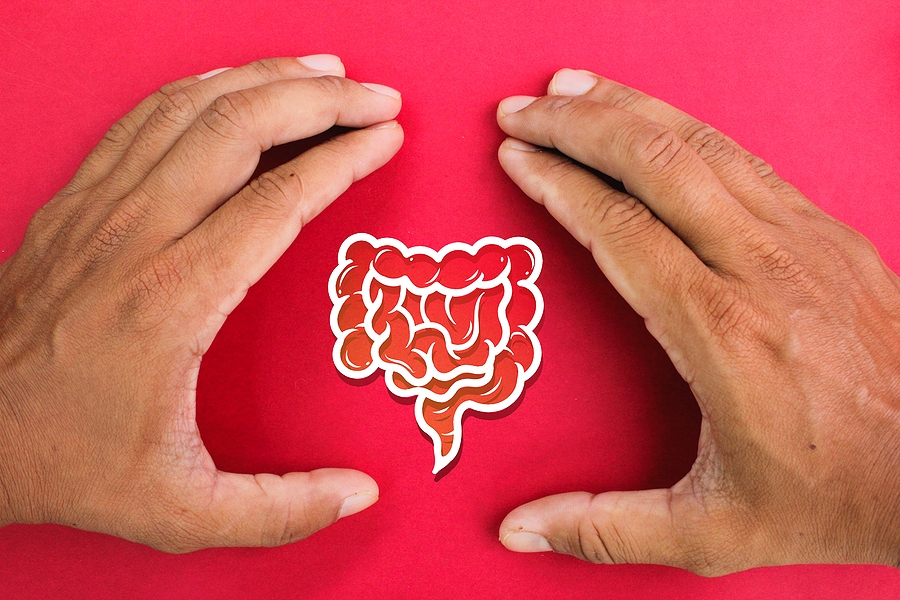Love Your Gut Week: 7 easy ways to boost digestive health
A healthy gut affects whole body and mind wellbeing. Here we find out how to keep your digestive system tip-top
If you don’t have digestive problems, you may think there’s nothing you need to do to look after your gut.
However, up to 80% of immune system cells are found in the gut, and gut bacteria influence bowel function, immune health, skin health, allergies and mental health.
So looking after your gut can help look after your whole body and mind – yet new research by the Love Your Gut campaign has found nearly two-thirds of people (65%) have no idea how vital gut health is to their overall health and wellbeing.
Love Your Gut Week (September 16-22) is held every year to help people look after their digestive system.
View this post on Instagram
Julie Thompson, information manager at Guts UK, one of the charities associated with the campaign, says: “We all have guts, so it’s vital we know how to look after them and more importantly, recognise the digestive symptoms that might be telling us something isn’t right. There are some things we can all do to help keep our guts happy, from maintaining a healthy balanced diet and moving our bodies – in essence, following a healthy lifestyle.”
While registered dietitian Jo Travers, who works with the Love Your Gut campaign, points out: “There’s a significant knowledge gap in understanding that gut health can improve your overall wellbeing.
“Taking control of your lifestyle to improve your gut health might sound overwhelming but it shouldn’t because many of the solutions are simple, practical ones that involve tweaks to our daily routines.”
Here’s how to do it:
1. Eat plenty of plants
Travers says eating a wide range of plant-based foods, such as fruits, vegetables, whole grains and legumes, will nourish the beneficial bacteria in your gut. “The more diverse your intake of plant foods, the more diverse your gut bacteria will be, positively impacting your sleep and stress.”
She suggests trying to consume 30 different plant-based foods a week, pointing out that different colours of the same veg, for example red, yellow or green peppers, all count separately towards your 30 plant-based foods weekly total.

2. Keep moving
Exercise is essential for overall health, and even light activity like a gentle walk can boost immune function, promote gut microbiome diversity and help stimulate gut motility which aids good digestion, says Travers.
“Busy lives can make it hard to find time for exercise, but I like to use downtime to squeeze in some exercise, like doing some squats or wall press-ups while waiting for the kettle to boil, or high-knee marching on the spot while my cup of tea brews,” she says.
3. Stay hydrated
Travers suggests trying to drink six to eight glasses of water daily, and says: “Never underestimate the importance of staying hydrated. It will improve just about every bodily process including digestion, energy levels and the quality of your sleep.”
She says the colour of your urine will show if you’re hydrated enough – a very light straw colour means you’re getting it right, but if it’s dark yellow to orange, it may be a sign you need to drink more water.
If you struggle to drink water, you can also consume hydrating foods such as cucumbers, celery, grapefruit, watermelon, strawberries, tomatoes and radishes.
4. Manage stress
View this post on Instagram
Although the Love Your Gut survey found 86% of respondents believed stress can influence poor gut health, less than a fifth (16%) proactively sought to manage their stress.
Travers explains that stress triggers production of the stress hormone cortisol, which is thought to disrupt communication pathways between the gut and the brain. This can impact blood flow and gut secretions, potentially fostering harmful bacteria and hindering the growth of beneficial ones.
“Although we can’t always control what happens in life, we can choose how we respond to stressful situations by learning stress management techniques like deep breathing, meditation, and mindfulness to lessen the impact on our body and make our gut microbiome more resilient,” she says.
5. Prioritise sleep
Although quality sleep can have a positive impact on gut health, the organisation found less than half (45%) of respondents prioritised getting at least seven hours of sleep per night.
“Many of us stay up late,” observes Travers, “but it’s important to remember that beneficial gut bacteria thrive in a well-rested body. Establishing a consistent bedtime routine that allows for seven to nine hours of sleep is a good starting point.”
She suggests avoiding screens before bed, reading a book instead, and making sure your bedroom is dark and cool.
6. Consume fermented foods
Travers says fermented foods can support gut health by promoting the growth of good bacteria. “Adding fermented foods to your diet is easier than you might think,” she says. “Dairy products contain live microbes, such as fermented milk drinks, yoghurt, sour cream, and most cheeses.”
However, she warns that fermented foods like certain sauerkraut and kimchi products made with vinegar or that are pasteurised may not contain live bacteria. “The same applies to pasteurised cheeses, so always check the label,” she says.

7. Get outside with a dog
Your environment can even have an impact on gut health. Animals, plants, soil, and green spaces all have their own microbiome of beneficial bacteria, and when we come into contact with them, beneficial bacteria can adhere to your skin and potentially be inhaled and ingested, explains Travers
“Being in nature can also nurture a healthy gut,” she says. “If you have a pet, you’re already one step ahead – cuddling your pet, walking through a park or pottering in the garden will help boost your exposure to these good bacteria and improve your own gut microbiome and wellbeing.”
The Press Association
Latest posts by The Press Association (see all)
- Actor Richard Chamberlain dies aged 90 - March 30, 2025
- 5 new books to read this week - March 26, 2025
- 6 things a physio wishes people over 60 would stop doing - March 25, 2025
- NHS reminder to 7.5m people as Covid-19 jab booking system opens - March 25, 2025
- The truth about cholesterol – what you need to know - March 25, 2025




















